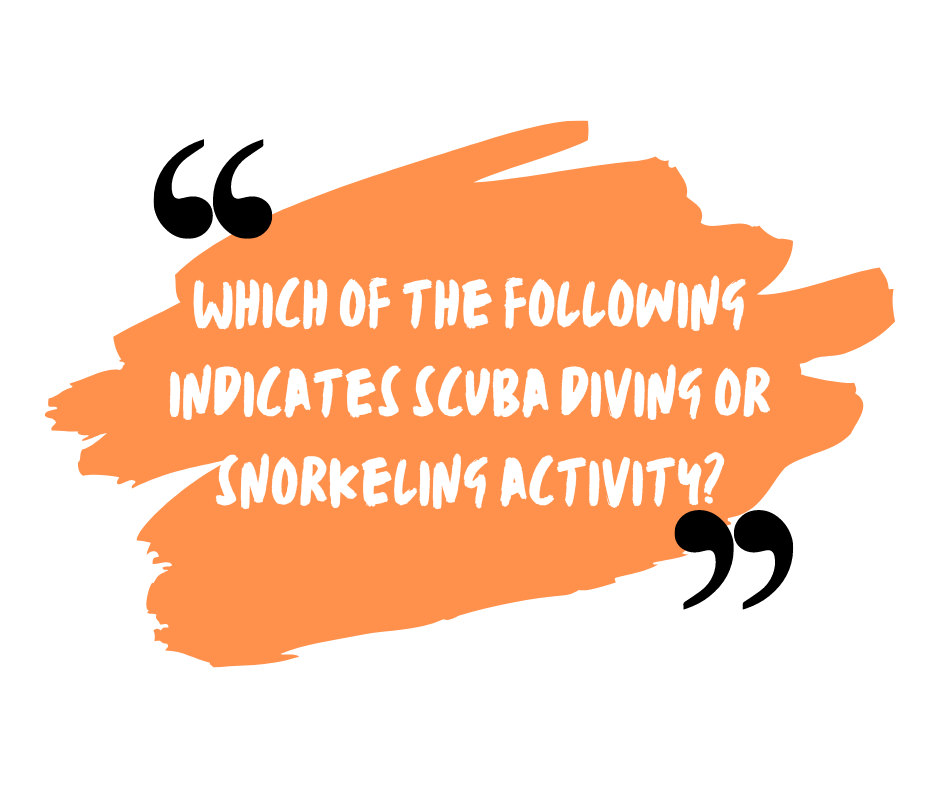Scuba diving is a more advanced and equipment-intensive activity that allows for deep exploration, while snorkeling is a simpler and surface-level activity suitable for observing underwater life in shallower waters. Each has its own unique appeal and is chosen based on individual preferences and comfort levels in the water.
Scuba diving and snorkeling are both water-based activities that offer a unique perspective on the underwater world. While they share similarities, they have distinct characteristics that set them apart. In this article, we will discuss the key indicators that help distinguish between scuba diving and snorkeling activities.
Which of the following indicates scuba diving or snorkeling activity?
1. Gear and Equipment
One of the most apparent indicators of scuba diving is the extensive gear used. Scuba divers wear a wetsuit or drysuit, buoyancy control device (BCD), regulator, tank, and often fins. Snorkelers, on the other hand, typically wear a swimsuit or rash guard and use a snorkel and mask. The presence of heavy gear is a clear sign of scuba diving.
2. Depth and Duration
The depth at which an activity takes place is another significant indicator. Scuba divers explore deeper waters, often going beyond 30 feet (9 meters) and frequently descending to over 100 feet (30 meters). Snorkelers, in contrast, stay on the water’s surface, usually in depths of up to 10 feet (3 meters). Scuba dives are generally longer, while snorkeling excursions are relatively shorter in duration.
3. Breathing Methods
A fundamental difference between the two activities lies in the method of breathing. Scuba divers use a tank of compressed air or a gas mixture and breathe through a regulator. Snorkelers, conversely, rely on holding their breath and using a snorkel to breathe while floating at the surface. The method of breathing can be a clear indicator of the activity.
4. Mobility and Buoyancy Control
Scuba divers have greater mobility and control over their buoyancy due to the equipment they use. They can descend and ascend at will and hover in midwater. Snorkelers, on the other hand, float on the water’s surface and have limited control over their depth. The way individuals move and navigate underwater can help identify the activity they are engaged in.
5. Dive Boat or Shore Entry
The mode of entry into the water is another indicator. Scuba divers often board dive boats equipped with racks for tanks and gear. They access dive sites further from the shore. Snorkelers, however, frequently enter the water directly from the shore or from a less specialized vessel, such as a snorkel boat. The type of entry can reveal the nature of the activity.

FAQ: Answers to Common Questions
Q1: Can I switch between scuba diving and snorkeling on the same outing?
A1: Yes, it’s possible to combine scuba diving and snorkeling activities on the same excursion. Some divers enjoy snorkeling during surface intervals.
Q2: Is snorkeling a prerequisite for scuba diving?
A2: Snorkeling is not a prerequisite for scuba diving, but many divers start with snorkeling as a way to become comfortable in the water before progressing to scuba diving.
Q3: Are there any safety concerns when transitioning from snorkeling to scuba diving on the same day?
A3: There are some considerations, such as avoiding heavy meals before scuba diving and adhering to no-fly time after a scuba dive. Consult with your dive instructor for guidance.
Conclusion
Scuba diving and snorkeling are both fantastic ways to explore the underwater world, and each has its unique characteristics. By recognizing key indicators like gear, depth, breathing methods, mobility, and entry mode, you can easily differentiate between these two activities. Whether you choose to snorkel or scuba dive, both offer unforgettable experiences that allow you to connect with the beauty of the aquatic realm in your own way.
